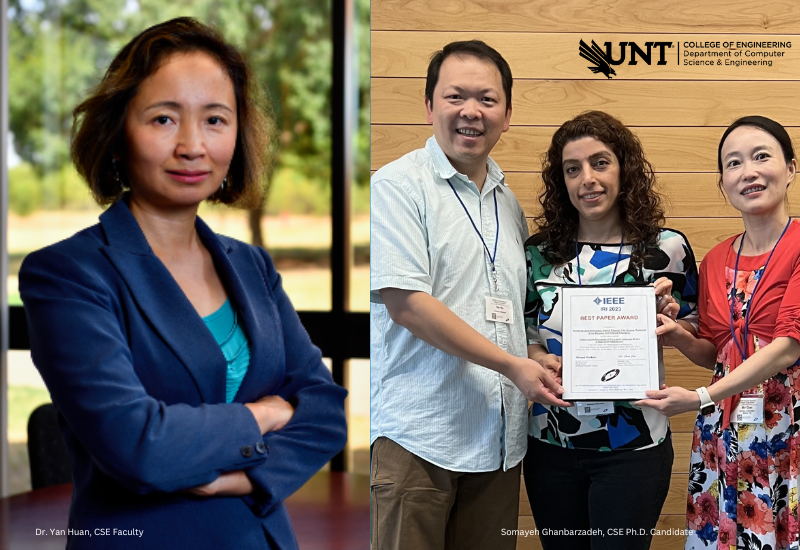
Dr. Yan Huang, CSE Faculty, and Somayeh Ghanbarzadeh, CSE Ph.D. candidate, among others, recently received the Best Paper Award for their collaborative research entitled "Improving the Reusability of Pre-trained Language Models in Real-world Applications." Somayeh accepted the award at the 24th IRI Conference on August 4th-6th hosted by The Institute of Electrical and Electronics Engineers (IEEE).
The conference serves as a forum for researchers and practitioners from academia, industry, and government to present, discuss, and exchange ideas that address real-world problems with real-world solutions. Theoretical and applied papers are both included.
This conference explores three major tracks: information reuse, information integration, and reusable systems. Information reuse explores the theory and practice of optimizing representations; information integration focuses on innovative strategies and algorithms for unifying diverse information in novel domains; and reusable systems focus on developing and deploying models and corresponding processes that enable Information Reuse and Integration to play a pivotal role in enhancing decision-making processes in various application domains.
The abstract of the award-winning paper is as follows: The reusability of state-of-the-art Pre-trained Language Models (PLMs) is often limited by their generalization problem, where their performance drastically decreases when evaluated on examples that differ from the training dataset, known as Out-of-Distribution (OOD)/unseen examples. This limitation arises from PLMs' reliance on spurious correlations, which work well for frequent example types but not for general examples. To address this issue, we propose a training approach called Mask-tuning, which integrates Masked Language Modeling (MLM) training objectives into the fine-tuning process to enhance PLMs' generalization. Comprehensive experiments demonstrate that Mask-tuning surpasses current state-of-the-art techniques and enhances PLMs' generalization on OOD datasets while improving their performance on in-distribution datasets. The findings suggest that Mask-tuning improves the reusability of PLMs on unseen data, making them more practical and effective for real-world applications.
The contributing team consists of Somayeh Ghanbarzadeh, Yan Huang, Hamid Palangi, Radames Cruz Moreno, and Hamed Khanpour. The UNT Dept. of Computer Science & Engineering extends their congratulations to everyone on team for their hard work & endeavors.
